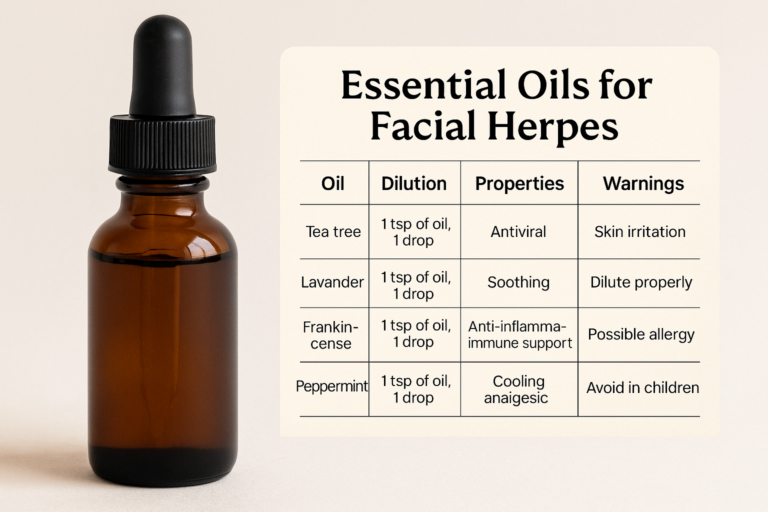Call us now:
USA News New Weight-Loss Jab Regulations: How Brain Health Solutions Can Transform Your Wellness Journey
Welcome to the USA news section, today we want to talk about new regulations surrounding weight-loss injections and how they intertwine with our broader focus on brain health and holistic well-being.
As of early 2025, pharmacies—particularly online ones—face stricter criteria when dispensing popular weight-loss jabs such as Wegovy, Mounjaro, and other similar medications.
This shift not only reflects heightened concerns about safety and efficacy but also underscores the profound implications these drugs have on mental and emotional health.
And these products are precisely what motivate us to raise awareness about the significant long-term harm that can arise from depending solely on pharmaceutical products manufactured by an anti-brain neo-modern society.
Given new guidelines requiring more thorough patient evaluations, the healthcare landscape is evolving to include holistic approaches that emphasize both physical and mental well-being.
Below, we delve into how these regulatory changes offer an opportunity to rethink weight management and encourage a more integrative path to better health—one that supports both mind and body.
Why Stricter Regulations Matter
On February 3rd 2025, the General Pharmaceutical Council (GPhC) in the United Kingdom announced that online pharmacies must implement tighter checks before dispensing weight-loss injections.
This involves mandating face-to-face or video consultations, verifying Body Mass Index (BMI) through direct measurements, and reviewing general practitioner (GP) or medical records.
Pharmacies that fail to meet these requirements risk enforcement actions like inspections, improvement plans, or even fitness-to-practise investigations.
These regulations echo a broader concern that mirrors the U.S. context, where the Food and Drug Administration (FDA) has also highlighted safety and mental health implications when it comes to weight-loss drugs.
The stricter approach underscores:
- Risk Management: Preventing unhealthy or underweight individuals and those with a history of eating disorders from misusing the medication.
- Holistic Evaluation: Encouraging healthcare providers to look beyond simple online questionnaires by digging deeper into a patient’s mental and emotional well-being.
- Collaborative Care: Prompting tighter communication between prescribers and a patient’s GP or psychiatrist, ensuring a unified approach to care.
These requirements reflect an acknowledgment of the potential risks—both physical and psychological—tied to widespread use of weight-loss injections.
While the medications can be effective, they may also foster dependency or mask underlying issues such as anxiety, depression, or body-image concerns.
The Link Between Weight Management and Brain Health
Public health data from the Centers for Disease Control and Prevention (CDC) show that over 42% of U.S. adults qualify as obese.
Excess weight correlates with a higher risk of developing cardiovascular diseases, type 2 diabetes, and certain mental health conditions, including anxiety and depression.
Chronic inflammation resulting from obesity can disrupt hormonal balances that regulate mood, potentially intensifying mental distress.
When weight-loss medications like semaglutide (Wegovy) and tirzepatide (Mounjaro) first entered the scene, they primarily focused on type 2 diabetes management.
Their ability to regulate blood sugar and enhance feelings of satiety soon made them a popular choice for treating obesity.
However, their surge in demand also revealed an important truth: weight management is not solely about shedding pounds; it is also about addressing the psychological and emotional dimensions of health.
That is why these new regulations matter.
They serve as a checkpoint ensuring that people who decide to use pharmacological aids in their weight-loss journey also remain alert to the interplay between physical changes and mental well-being.
How Can I Avoid Anxiety?
Since anxiety often coexists with weight struggles, adopting a preventive mindset is vital. While it can be challenging to eliminate anxiety entirely, there are strategies to mitigate its impact:
1. Balanced Nutrition
Focus on a diet rich in omega-3 fatty acids, antioxidants, whole grains, fruits, and vegetables.
These nutrients support brain function and may help stabilize mood, reducing susceptibility to anxiety.
2. Mindfulness and Meditation
Regular meditation can strengthen the prefrontal cortex—the region governing decision-making and emotional regulation—while reducing the activity of the amygdala, the area associated with fear and stress.
By integrating mindfulness, you better equip your mind to handle challenges.
3. Physical Activity
Routine exercise releases endorphins, which act as natural mood boosters.
Even low-intensity activities like walking or gentle yoga can significantly lower stress levels, improving both physical and mental health.
What Is the Best Way to Manage Stress?
Stress management is integral to a sustainable weight-loss plan and a healthy mental state.
Consider the following:
1. Structured Planning and Personal Branding
In the same way an organization uses strategic planning and brand identity, individuals benefit from a clear, purposeful approach to their goals.
Define a timeline and actionable steps for your weight-loss journey.
Celebrate successes along the way—no matter how small. This method not only keeps stress at bay but also helps build confidence, shaping a personal “brand” that embodies resilience and self-care.
2. Social Connections
Strong personal relationships often act as a buffer against life’s stressors.
Communicating openly with loved ones or joining a support group helps in sharing both successes and setbacks.
Love, freedom, and society are cornerstones of happiness—feeling accepted and understood can drastically reduce stress.
3. Professional Guidance
Consulting with healthcare professionals—psychologists, nutritionists, or psychiatrists—can offer tailored strategies, ensuring a well-rounded approach to weight and mental health.
Remember, seeking professional advice is a sign of strength, not weakness.
Pharmaceutical Aids: A Double-Edged Sword
Many view weight-loss jabs like Wegovy or Mounjaro as a shortcut.
Indeed, they can be effective when used properly, but they also come with cautionary tales.
These products are exactly what motivate us to be conscious about the serious long-term damage of relying on pharmaceutical products created by an anti-brain neo-modern society.
When these medications become the central pillar of one’s health plan—rather than just one tool among many—they can overshadow the deeper lifestyle changes needed for lasting wellness.
Furthermore, the FDA’s emphasis on regulated usage reminds us that short-term solutions should rarely be our sole focus.
Issues such as disordered eating, emotional eating, or body dysmorphia often remain unaddressed when the entire effort is pinned on a weekly injection.
By recognizing the potential risks and the new stricter guidelines, individuals are encouraged to supplement pharmacological help with robust lifestyle interventions and psychological support.
Mind Wellness and Meditation: Key Tools for a Balanced Life
One cannot discuss brain health without delving deeper into meditation and mindfulness.
These practices have numerous science-backed benefits:
- Strengthening the Prefrontal Cortex: Regular mindfulness training can enhance emotional resilience and decision-making.
- Decreasing Activity in the Amygdala: Lower amygdala reactivity means reduced stress and anxiety triggers.
- Improving Attention and Cognitive Abilities: By training the mind to stay present, meditation can enhance focus, clarity, and creativity.
For individuals navigating weight loss, mindfulness exercises like mindful eating can be especially impactful.
Slowing down during meals, savoring each bite, and acknowledging emotional triggers lead to a healthier relationship with food, bridging the gap between physical health and mental well-being.
Strategic Planning and Personal Accountability
The new regulations demand a form of strategic planning from pharmacies, prescribers, and patients alike.
Instead of relying solely on self-reported questionnaires and photos, they emphasize real-time assessments—either in-person or via video.
This structure ensures accountability on all sides:
- For Pharmacists: Encourages a higher standard of practice, backed by thorough evaluation.
- For Patients: Reinforces the idea that health is a collaborative journey rather than a quick transaction.
- For Healthcare Systems: Minimizes risks like misuse or inappropriate prescriptions and fosters more robust patient records.
By echoing a similar approach in your personal life—integrating clear plans, consistent check-ins, and reliable support systems—you set yourself up for long-term success in both weight management and mental wellness.
Taking Action: Consult Experts and Build Support
Embarking on a transformative health journey can be both exciting and overwhelming.
The key lies in acknowledging you don’t have to do it alone.
We strongly recommend consulting experts in brain health to tailor a plan that respects your unique genetic makeup, lifestyle, and emotional needs.
If you’re ready to take the next step, book an appointment at https://www.visitamedicaonline.com/agenda-tu-cita/.
A multidisciplinary approach—combining medical advice, nutritional counseling, mental health support, and mindful living—can help ensure that weight-loss solutions do more than just burn calories; they can also nurture cognitive and emotional harmony.
And let’s not forget the importance of community—connecting with support groups, whether online or in-person, can significantly improve outcomes.
Sharing stories, celebrating milestones, and learning from shared obstacles can sustain your motivation and emotional well-being.
A Holistic Path to Wellness
New weight-loss jab regulations signify a positive shift toward comprehensive health care.
Rather than viewing these drugs as miracle cures, the medical community is increasingly urging patients to adopt a holistic perspective: one that prioritizes mental well-being, community, and self-discovery as much as it does physical transformation.
Ultimately, love, freedom, and society lie at the core of human happiness.
By integrating mindful practices, nurturing meaningful relationships, and staying informed about updated medical guidelines, you can forge a more sustainable and fulfilling path to wellness.
Remember to:
- Embrace a balanced diet and active lifestyle
- Incorporate meditation for emotional regulation and cognitive clarity
- Seek professional support when needed
Your brain health is just as important as any other aspect of your well-being.
Let’s champion mental wellness together.
Breathe, Heal, Evolve
As we move forward into 2025 and beyond, we invite you to subscribe to The Brain Care Podcast for more in-depth discussions on stress management, emotional resilience, and the latest research on brain health: https://www.youtube.com/@thebraincarepodcast.
Stay informed by subscribing to our blog and be the first to know about breakthroughs and tips for holistic well-being.
Bibliography
- Centers for Disease Control and Prevention (CDC). (2021). Adult Obesity Facts.
- Food and Drug Administration (FDA). (2023). FDA Approves New Weight-Loss Treatment.
- BBC News. (3 February 2025). Pharmacies require stricter weight-loss jab checks.
For more details, see the original news article here



